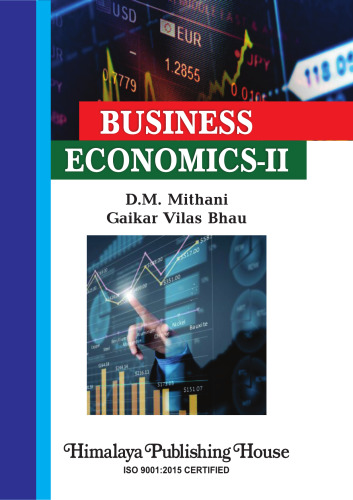I had two fathers, a rich one and a poor one. One was highly educated and intelligent. He had a Ph.D. and completed four years of undergraduate work in less than two years. He then went on to Stanford University, the University of Chicago, and Northwestern University to do his advanced studies, all on full financial scholarships. The other father never finished the eighth grade. Both men were successful in their careers, working hard all their lives. Both earned substantial incomes. Yet one always struggled financially. The other would become one of the richest men in Hawaii. One died leaving tens of millions of dollars to his family, charities, and his church. The other left bills to be paid. Both men were strong, charismatic, and influential. Both men offered me advice, but they did not advise the same things. Both men believed strongly in education but did not recommend the same course of study .
If I had had only one dad, I would have had to accept or reject his advice. Having two dads offered me the choice of contrasting points of view: one of a rich man and one of a poor man. Instead of simply accepting or rejecting one or the other, I found myself thinking more, comparing, and then choosing for myself. The problem was that the rich man was not rich yet, and the poor man was not yet poor. Both were just starting out on their careers, and both were struggling with money and families. But they had very different points of view about money. For example, one dad would say, “The love of money is the root of all evil.” The other said, “The lack of money is the root of all evil.” As a young boy, having two strong fathers both influencing me was difficult. I wanted to be a good son and listen, but the two fathers did not say the same things. The contrast in their points of view, particularly about money, was so extreme that I grew curious and intrigued. I began to start thinking for long periods of time about what each was saying. Much of my private time was spent reflecting, asking myself questions such as, “Why does he say that?” and then asking the same question of the other dad’s statement. It would have been much easier to simply say, “Yeah, he’s right. I agree with that.” Or to simply reject the point of view by saying, “The old man doesn’t know what he’s talking about.” Instead, having two dads whom I loved forced me to think and ultimately choose a way of thinking for myself. As a process, choosing for myself turned out to be much more valuable in the long run than simply accepting or rejecting a single point of view. One of the reasons the rich get richer, the poor get poorer, and the middle class struggles in debt is that the subject of money is taught at home, not in school. Most of us learn about money from our parents. So what can poor parents tell their child about money? They simply say, “Stay in school and study hard.” The child may graduate with excellent grades, but with a poor person’s financial programming and mindset.
Sadly, money is not taught in schools. Schools focus on scholastic and professional skills, but not on financial skills. This explains how smart bankers, doctors, and accountants who earned excellent grades may struggle financially all of their lives. Our staggering national debt is due in large part to highly educated politicians and government officials making financial decisions with little or no training in the subject of money.
Today I often wonder what will soon happen when we have millions of people who need financial and medical assistance. They will be dependent upon their families or the government for financial support. What will happen when Medicare and Social Security run out of money? How will a nation survive if teaching children about money continues to be left to parents—most of whom will be, or already are, poor? Because I had two influential fathers, I learned from both of them. I had to think about each dad’s advice, and in doing so, I gained valuable insight into the power and effect of one’s thoughts on one’s life. For example, one dad had a habit of saying, “I can’t afford it.” The other dad forbade those words to be used. He insisted I ask, “How can I afford it?” One is a statement, and the other is a question. One lets you off the hook, and the other forces you to think. My soon-to-be-rich dad would explain that by automatically saying the words “I can’t afford it,” your brain stops working. By asking the question “How can I afford it?” your brain is put to work. He did not mean that you should buy everything you want. He was fanatical about exercising your mind, the most powerful computer in the world. He’d say, “My brain gets stronger every day because I exercise it. The stronger it gets, the more money I can make.” He believed that automatically saying “I can’t afford it” was a sign of mental laziness. Although both dads worked hard, I noticed that one dad had a habit of putting his brain to sleep when it came to finances, and the other had a habit of exercising his brain. The long-term result was that one dad grew stronger financially, and the other grew weaker. It is not much different from a person who goes to the gym to exercise on a regular basis versus someone who sits on the couch watching television. Proper physical exercise increases your chances for health, and proper mental exercise increases your chances for wealth. My two dads had opposing attitudes and that affected the way they thought. One dad thought that the rich should pay more in taxes to take care of those less fortunate. The other said, “Taxes punish those who produce and reward those who don’t produce.”
One dad recommended, “Study hard so you can find a good company to work for.” The other recommended, “Study hard so you can find a good company to buy.” One dad said, “The reason I’m not rich is because I have you kids.” The other said, “The reason I must be rich is because I have you kids.” One encouraged talking about money and business at the dinner table, while the other forbade the subject of money to be discussed over a meal. One said, “When it comes to money, play it safe. Don’t take risks.” The other said, “Learn to manage risk.” One believed, “Our home is our largest investment and our greatest asset.” The other believed, “My house is a liability, and if your house is your largest investment, you’re in trouble.” Both dads paid their bills on time, yet one paid his bills first while the other paid his bills last. One dad believed in a company or the government taking care of you and your needs. He was always concerned about pay raises, retirement plans, medical benefits, sick leave, vacation days, and other perks. He was impressed with two of his uncles who joined the military and earned a retirement-and-entitlement package for life after twenty years of active service. He loved the idea of medical benefits and PX privileges the military provided its retirees. He also loved the tenure system available through the university. The idea of job protection for life and job benefits seemed more important, at times, than the job. He would often say, “I’ve worked hard for the government, and I’m entitled to these benefits.” The other believed in total financial self-reliance. He spoke out against the entitlement mentality and how it created weak and financially needy people. He was emphatic about being financially competent. One dad struggled to save a few dollars. The other created investments. One dad taught me how to write an impressive resumé so I could find a good job. The other taught me how to write strong business and financial plans so I could create jobs.
Being a product of two strong dads allowed me the luxury of observing the effects different thoughts have on one’s life. I noticed that people really do shape their lives through their thoughts. For example, my poor dad always said, “I’ll never be rich.” And that prophecy became reality. My rich dad, on the other hand, always referred to himself as rich. He would say things like, “I’m a rich man, and rich people don’t do this.” Even when he was flat broke after a major financial setback, he continued to refer to himself as a rich man. He would cover himself by saying, “There is a difference between being poor and being broke. Broke is temporary. Poor is eternal.” My poor dad would say, “I’m not interested in money,” or “Money doesn’t matter.” My rich dad always said, “Money is power.” The power of our thoughts may never be measured or appreciated, but it became obvious to me as a young boy that it was important to be aware of my thoughts and how I expressed myself. I noticed that my poor dad was poor, not because of the amount of money he earned, which was significant, but because of his thoughts and actions. As a young boy having two fathers, I became acutely aware of being careful about which thoughts I chose to adopt as my own. Should I listen to my rich dad or to my poor dad? Although both men had tremendous respect for education and learning, they disagreed about what they thought was important to learn. One wanted me to study hard, earn a degree, and get a good job to earn money. He wanted me to study to become a professional, an attorney or an accountant, and to go to business school for my MBA. The other encouraged me to study to be rich, to understand how money works, and to learn how to have it work for me. “I don’t work for money!” were words he would repeat over and over. “Money works for me!” At the age of nine, I decided to listen to and learn from my rich dad about money. In doing so, I chose not to listen to my poor dad, even though he was the one with all the college degrees.
چکیده فارسی
من دو پدر داشتم، یکی پولدار و دیگری فقیر. یکی تحصیلکرده و باهوش بود. دکترا داشت. و چهار سال کار در مقطع کارشناسی را در کمتر از دو سال به پایان رساند. او سپس به دانشگاه استنفورد، دانشگاه شیکاگو و دانشگاه نورث وسترن رفت تا مطالعات پیشرفته خود را انجام دهد، همه با بورسیه مالی کامل. پدر دیگر هیچ وقت کلاس هشتم را تمام نکرد. هر دو مرد در حرفه خود موفق بودند و تمام زندگی خود را سخت کار کردند. هر دو درآمد قابل توجهی به دست آوردند. با این حال یکی همیشه از نظر مالی مشکل داشت. دیگری یکی از ثروتمندترین مردان هاوایی خواهد شد. یکی از آنها جان خود را از دست داد و ده ها میلیون دلار به خانواده، مؤسسات خیریه و کلیسای خود گذاشت. بقیه قبوض را برای پرداخت باقی گذاشتند. هر دو مرد قوی، کاریزماتیک و تأثیرگذار بودند. هر دو نفر به من نصیحت کردند، اما چیزهای مشابهی را توصیه نکردند. هر دو مرد شدیداً به تحصیل اعتقاد داشتند اما دوره تحصیلی مشابهی را توصیه نمی کردند.
اگر فقط یک پدر داشتم، باید توصیه او را می پذیرفتم یا رد می کردم. داشتن دو پدر به من امکان انتخاب دیدگاه های متضاد را داد: یکی از یک مرد ثروتمند و دیگری از یک مرد فقیر. به جای اینکه به سادگی یکی یا دیگری را بپذیرم یا رد کنم، متوجه شدم که بیشتر فکر می کنم، مقایسه می کنم و سپس برای خودم انتخاب می کنم. مشکل این بود که آن مرد ثروتمند هنوز ثروتمند نشده بود و مرد فقیر هنوز فقیر نبود. هر دو تازه کار خود را شروع کرده بودند و هر دو با پول و خانواده دست و پنجه نرم می کردند. اما آنها در مورد پول دیدگاه های بسیار متفاوتی داشتند. برای مثال، یکی از پدرها میگوید: «عشق به پول، ریشه همه بدیها است.» دیگری گفت: بی پولی ریشه همه بدی هاست. به عنوان یک پسر جوان، داشتن دو پدر قوی که هر دو بر من تأثیر می گذاشتند دشوار بود. من می خواستم پسر خوبی باشم و گوش کنم، اما دو پدر یک چیز را نمی گفتند. تضاد در دیدگاه آنها، به ویژه در مورد پول، آنقدر شدید بود که من کنجکاو و کنجکاو شدم. شروع کردم به فکر کردن برای مدت طولانی در مورد اینکه هر کدام چه می گویند. بیشتر وقت خصوصی من صرف انعکاس و پرسیدن سوالاتی از خودم میشود، "چرا این را میگوید؟" و سپس همان سوال را از اظهارات پدر دیگر پرسید. خیلی سادهتر میتوانست بگوییم: «بله، او درست میگوید. من با آن موافقم." یا صرفاً با گفتن "پیرمرد نمی داند در مورد چه چیزی صحبت می کند" دیدگاه را رد کنید. در عوض، داشتن دو پدری که دوستشان داشتم، مرا مجبور کرد که فکر کنم و در نهایت راهی برای فکر کردن برای خودم انتخاب کنم. به عنوان یک فرآیند، انتخاب برای خودم در دراز مدت بسیار ارزشمندتر از پذیرش یا رد یک دیدگاه واحد بود. یکی از دلایلی که ثروتمندان ثروتمندتر می شوند، فقرا فقیرتر می شوند و طبقه متوسط با بدهی دست و پنجه نرم می کند این است که موضوع پول در خانه تدریس می شود نه در مدرسه. بسیاری از ما در مورد پول از والدین خود یاد می گیریم. پس والدین فقیر در مورد پول چه چیزی می توانند به فرزندشان بگویند؟ آنها به سادگی می گویند: "در مدرسه بمان و سخت درس بخوان." ممکن است کودک با نمرات عالی فارغ التحصیل شود، اما با برنامه ریزی مالی و طرز فکر یک فرد ضعیف.
متأسفانه، پول در مدارس آموزش داده نمی شود. مدارس بر مهارت های تحصیلی و حرفه ای تمرکز می کنند، اما نه بر مهارت های مالی. این توضیح میدهد که چگونه بانکداران، پزشکان و حسابداران باهوشی که نمرات عالی کسب کردهاند، ممکن است تمام عمر خود را از نظر مالی دچار مشکل کنند. بدهی ملی سرسام آور ما تا حد زیادی ناشی از سیاستمداران تحصیلکرده و مقامات دولتی است که تصمیمات مالی خود را با آموزش اندک یا بدون آموزش در موضوع پول می گیرند.
امروز اغلب به این فکر میکنم که وقتی میلیونها نفر به کمک مالی و پزشکی نیاز دارند، به زودی چه اتفاقی خواهد افتاد. آنها برای حمایت مالی به خانواده خود یا دولت وابسته خواهند بود. چه اتفاقی میافتد وقتی مدیکر و تامین اجتماعی بی پول شوند؟ اگر آموزش دادن پول به کودکان همچنان به والدین سپرده شود - که اکثر آنها فقیر خواهند بود یا در حال حاضر هستند، یک ملت چگونه زنده خواهد ماند؟ چون دو پدر تاثیرگذار داشتم از هر دوی آنها یاد گرفتم. من باید در مورد توصیه های هر پدر فکر می کردم، و با انجام این کار، بینش ارزشمندی در مورد قدرت و تأثیر افکار یک فرد در زندگی به دست آوردم. به عنوان مثال، یکی از پدرها عادت داشت که بگوید: "من نمی توانم آن را بپردازم." پدر دیگر استفاده از این کلمات را منع کرد. او اصرار کرد که بپرسم: "چگونه می توانم هزینه کنم؟" یکی بیانیه است و دیگری سؤال. یکی شما را از قلاب خارج می کند و دیگری شما را مجبور می کند فکر کنید. پدر من که به زودی ثروتمند می شود توضیح می دهد که با گفتن خودکار کلمات "من نمی توانم آن را بپردازم"، مغز شما از کار می افتد. با پرسیدن این سوال "چگونه می توانم هزینه کنم؟" مغز شما به کار گرفته می شود منظورش این نبود که هر چه می خواهید بخرید. او در مورد ورزش کردن ذهن شما، قدرتمندترین کامپیوتر جهان، متعصب بود. او میگفت: «مغز من هر روز قویتر میشود چون آن را ورزش میکنم. هرچه قویتر شود، میتوانم پول بیشتری به دست بیاورم.» او معتقد بود که گفتن خودکار «نمیتوانم بپردازم» نشانه تنبلی ذهنی است. اگرچه هر دو پدر سخت کار میکردند، اما متوجه شدم که یکی از پدرها عادت داشت مغزش را در مورد مسائل مالی بخواباند و دیگری عادت داشت مغزش را تمرین دهد. نتیجه درازمدت این بود که یکی از پدرها از نظر مالی قویتر شد و دیگری ضعیفتر شد. تفاوت چندانی با فردی که به طور منظم برای ورزش به باشگاه می رود با فردی که روی مبل می نشیند و تلویزیون تماشا می کند، ندارد. ورزش بدنی مناسب شانس شما را برای سلامتی افزایش می دهد و ورزش ذهنی مناسب شانس شما را برای ثروت افزایش می دهد. دو پدر من نگرش های مخالفی داشتند و این بر طرز فکر آنها تأثیر گذاشت. یکی از پدرها فکر می کرد که ثروتمندان باید مالیات بیشتری بپردازند تا از افراد کم بخت مراقبت کنند. دیگری گفت: "مالیات کسانی را که تولید می کنند مجازات می کند و به کسانی که تولید نمی کنند پاداش می دهد."
یکی از پدرها توصیه کرد، "سخت مطالعه کنید تا بتوانید یک شرکت خوب برای کار پیدا کنید." دیگری توصیه کرد: "سخت مطالعه کنید تا بتوانید یک شرکت خوب برای خرید پیدا کنید." یکی از پدرها گفت: دلیل اینکه من پولدار نیستم این است که شما را بچه دارم. دیگری گفت: "دلیل اینکه من باید پولدار باشم این است که شما را بچه دارم." یکی تشویق می کرد که سر میز شام در مورد پول و تجارت صحبت کند، در حالی که دیگری بحث در مورد پول را در یک وعده غذایی ممنوع می کرد. یکی گفت: «وقتی نوبت به پول میرسد، مطمئن باشید. ریسک نکنید.» دیگری گفت: مدیریت ریسک را یاد بگیرید. یکی معتقد بود: "خانه ما بزرگترین سرمایه گذاری و بزرگترین دارایی ما است." دیگری معتقد بود: "خانه من یک بدهی است، و اگر خانه شما بزرگترین سرمایه شما باشد، در مشکل هستید." هر دو پدر صورتحساب های خود را به موقع پرداخت کردند، با این حال یکی اول صورتحساب های خود را پرداخت کرد و دیگری آخرین بار صورتحساب های خود را پرداخت کرد. یکی از پدرها معتقد بود که یک شرکت یا دولت از شما و نیازهای شما مراقبت می کند. او همیشه نگران افزایش حقوق، برنامه های بازنشستگی، مزایای پزشکی، مرخصی استعلاجی، روزهای مرخصی و مزایای دیگر بود. او تحت تأثیر دو تن از عموهایش قرار گرفت که به ارتش پیوستند و پس از بیست سال خدمت فعال، یک بسته بازنشستگی و استحقاق مادام العمر دریافت کردند. او ایده مزایای پزشکی و امتیازات PX را که ارتش به بازنشستگان خود می داد، دوست داشت. او همچنین عاشق سیستم تصدی در دسترس از طریق دانشگاه بود. ایده حفاظت از شغل برای زندگی و مزایای شغلی، گاهی مهمتر از شغل به نظر می رسید. او اغلب میگفت: «من برای دولت سخت کار کردهام و از این مزایا برخوردارم». دیگری به خوداتکایی کامل مالی اعتقاد داشت. او علیه ذهنیت استحقاقی و اینکه چگونه افراد ضعیف و نیازمند مالی ایجاد می کند، صحبت کرد. او تاکید داشت که از نظر مالی توانمند باشد. یکی از پدرها تلاش کرد تا چند دلار پس انداز کند. دیگری سرمایه گذاری ایجاد کرد. یک پدر به من یاد داد که چگونه یک رزومه تاثیرگذار بنویسم تا بتوانم شغل خوبی پیدا کنم. دیگری به من یاد داد که چگونه برنامه های تجاری و مالی قوی بنویسم تا بتوانم شغل ایجاد کنم.
این که محصول دو پدر قوی هستم به من این امکان را می دهد که تأثیرات افکار مختلف را بر زندگی فرد مشاهده کنم. متوجه شدم که مردم واقعاً زندگی خود را از طریق افکارشان شکل می دهند. به عنوان مثال، پدر فقیر من همیشه می گفت: "من هرگز ثروتمند نخواهم شد." و آن پیشگویی به واقعیت تبدیل شد. از طرف دیگر، پدر پولدار من همیشه از خود به عنوان ثروتمند یاد می کرد. او جملاتی از این قبیل می گفت: "من یک مرد ثروتمند هستم و افراد ثروتمند این کار را نمی کنند." حتی زمانی که او پس از یک شکست بزرگ مالی دچار مشکل شد، همچنان از خود به عنوان یک مرد ثروتمند یاد می کرد. خودش را می پوشاند و می گفت: «بین فقیر بودن و شکسته بودن فرق است. خرابی موقتی است فقیر جاودانه است.» پدر بیچاره ام می گفت: «من به پول علاقه ای ندارم» یا «پول مهم نیست». پدر پولدار من همیشه می گفت: "پول قدرت است." ممکن است قدرت افکار ما هرگز اندازه گیری یا قدردانی نشود، اما برای من به عنوان یک پسر جوان آشکار شد که مهم است که از افکارم و نحوه بیان خودم آگاه باشم. متوجه شدم که پدر بیچاره من فقیر است، نه به خاطر مقدار پولی که به دست می آورد، بلکه به خاطر افکار و اعمالش. به عنوان پسر جوانی که دو پدر داشتم، به شدت متوجه شدم که مراقب افکار خودم باشم. به حرف پدر پولدارم گوش کنم یا به پدر فقیرم؟ اگرچه هر دو مرد احترام فوق العاده ای برای آموزش و یادگیری قائل بودند، اما در مورد آنچه که فکر می کردند یادگیری مهم است، اختلاف نظر داشتند. یکی از من می خواست سخت درس بخوانم، مدرک بگیرم و شغل خوبی پیدا کنم تا پول دربیاورم. او از من می خواست که درس بخوانم تا حرفه ای، وکیل یا حسابدار شوم و برای MBA به مدرسه بازرگانی بروم. دیگری مرا تشویق کرد که درس بخوانم تا پولدار شوم، بفهمم پول چگونه کار میکند، و یاد بگیرم که چگونه آن را برایم کار کنم. "من برای پول کار نمی کنم!" کلماتی بودند که او بارها و بارها تکرار می کرد. "پول برای من کار می کند!" در سن نه سالگی تصمیم گرفتم به پدر پولدارم گوش کنم و در مورد پول از او یاد بگیرم. با این کار، ترجیح دادم به حرف پدر بیچارهام گوش ندهم، حتی اگر او کسی بود که تمام مدارک دانشگاهی را داشت.
ادامه ...
بستن ...
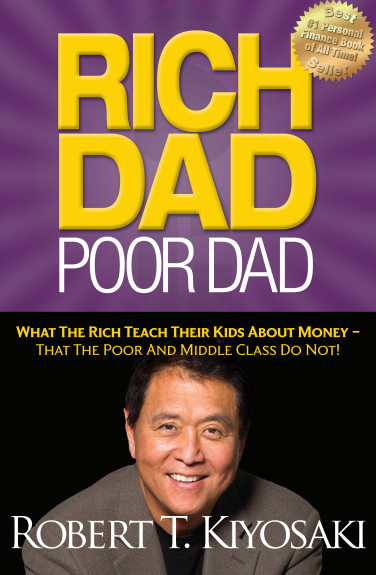


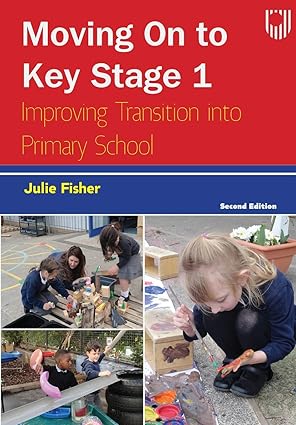
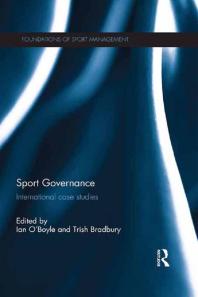
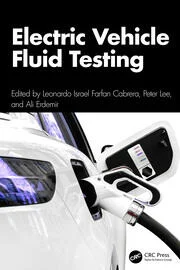
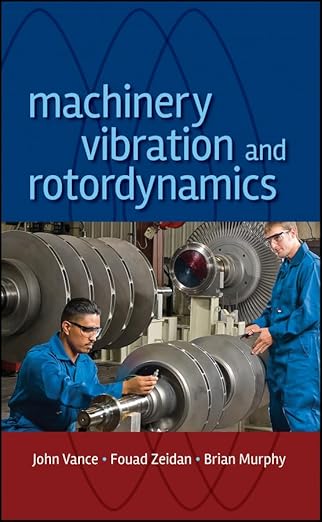

![Our mission to the court of Marocco [Morocco] in 1880, under Sir John Drummond Hay - pdf Our mission to the court of Marocco [Morocco] in 1880, under Sir John Drummond Hay - pdf](https://dl.libsan.ir/images/1/12/112108724_694b9e9769312.jpg)

